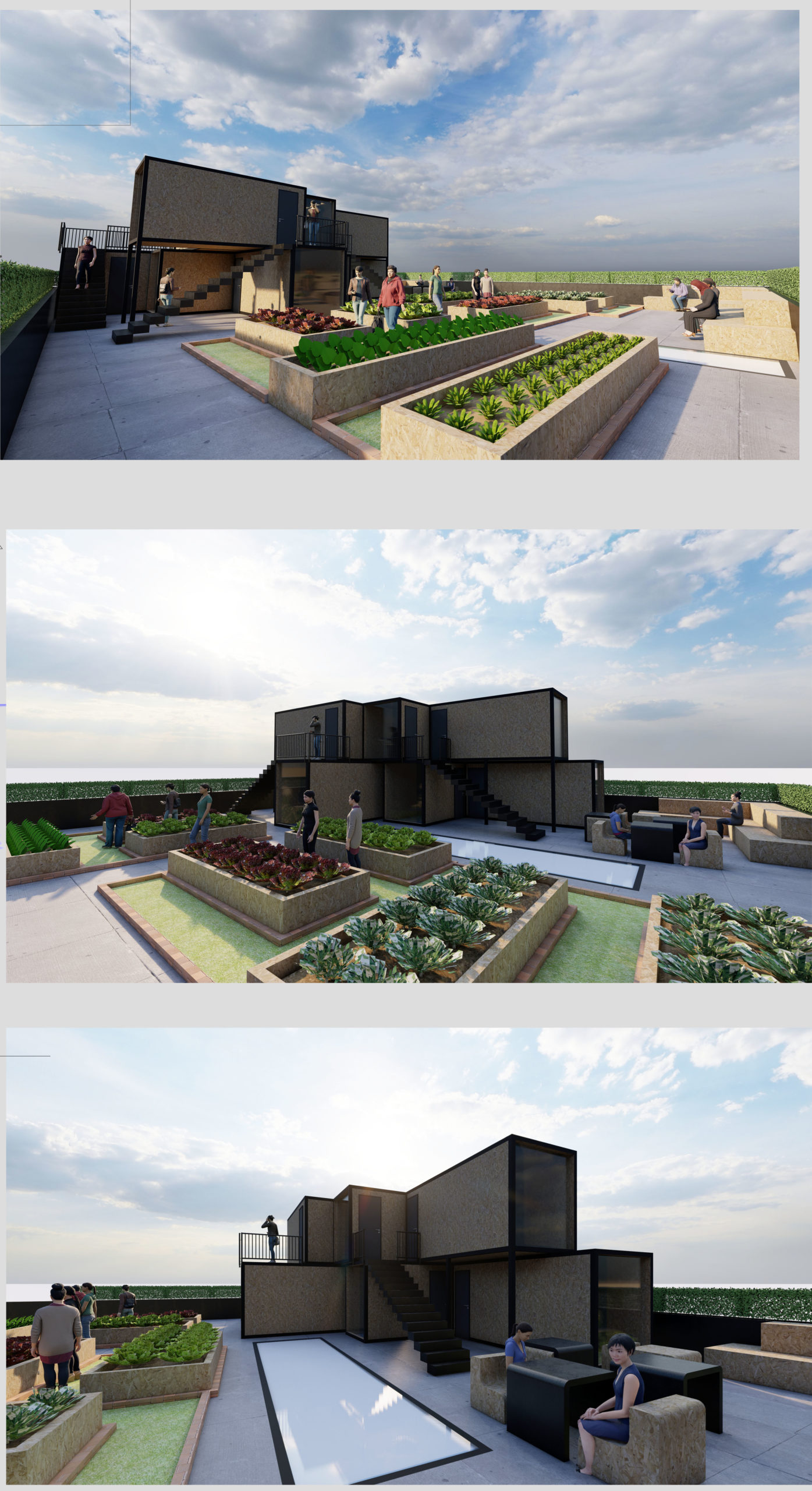Architecture students from Umeå University (Sweden) and Yaşar University (Turkey) have collaborated with Syrian refugees and low-income Turkish residents to create community-focused architectural designs in İzmir, Turkey. The collaboration is part of the interdisciplinary “Wellbeing, Housing and Infrastructure in Turkey” (WHIT) project, led by the Institute of Development Studies.
Turkey is host to around four million Syrian refugees, with about 130,000 living in Izmir – the country’s third largest city – alongside low-income and disadvantaged Turkish residents. The designs create a new community rooftop space at the TIAFI Community Centre, which offers support to refugees and Turkish low-income groups needing help with navigating asylum, education, health and social services.
The rooftop designs will create a vital new space for safe outdoor play, socialising and urban gardening as a means of integration, as well as education and trauma therapy. It aims to be both a sanctuary for the TIAFI (Team International Assistance for Integration) community and a beacon of hope for the underserved neighbourhood in which it sits. The project overall highlights the important role that architecture can play in aiding integration between refugees and host country citizens.

Dolf te Lintelo, Research Fellow and Cities Cluster Co-Leader at the Institute of Development Studies, commented: “Today, Turkish cities and their peripheries are facing significant challenges in housing millions of long-term displaced Syrian refugees side by side with the urban poor, while simultaneously facing Covid-19 and its socio-economic outfall. This project seeks to bring social science and architectural lenses to understanding and proposing small-scale built environment interventions that can support resilience, social cohesion and the wellbeing of low-income host and newcomers in Izmir and Torbali.”
Robert Mull, Professor at Brighton University and Visiting Professor at Umeå University, commented: “Tiafi is an extraordinary community project led and run by inspiring volunteers. Our students have been engaging with Tiafi and its clients for the past two years. We now have the opportunity to stop drawing and to start building. The finished rooftop will not only have a decisive impact on the lives of the refugees supported by Tiafi but on our students who will be able to test their skills and value as architects, in response to one of the most pressing urban challenges we face as a global community.”
Meltem Gürel, Professor at Yaşar University noted that, “The project presented a wonderful opportunity for architecture students to understand problems of all communities, including Syrian migrants, living in the socioeconomically underdeveloped regions of Izmir. They came up with very innovative proposals and were highly motivated to work on a live project with an international team. This fall, they will have the opportunity for building their designs to make a difference in the lives of all migrant communities.”
Students from next year’s cohort from Umea University and Yaşar University will work on finalising the designs and construction is scheduled for December 2021 to January 2022. Further information and opportunities to donate funding or skills towards the rooftop project can be found at architectureindevelopment.org.
The Wellbeing, Housing and Infrastructure in Turkey (WHIT) project brings together civil engineers, university students, architects and social scientists to address housing challenges facing low-income Syrian refugees and Turkish groups in Izmir, Turkey. The project uses mixed methods to find ‘durable solutions’ rooted in the wellbeing priorities of vulnerable groups and contributes towards achieving the Sustainable Development Goal 11 of secure, inclusive and safe cities.
The WHIT research project is funded by the British Academy who will also be supporting the construction of the rooftop space.